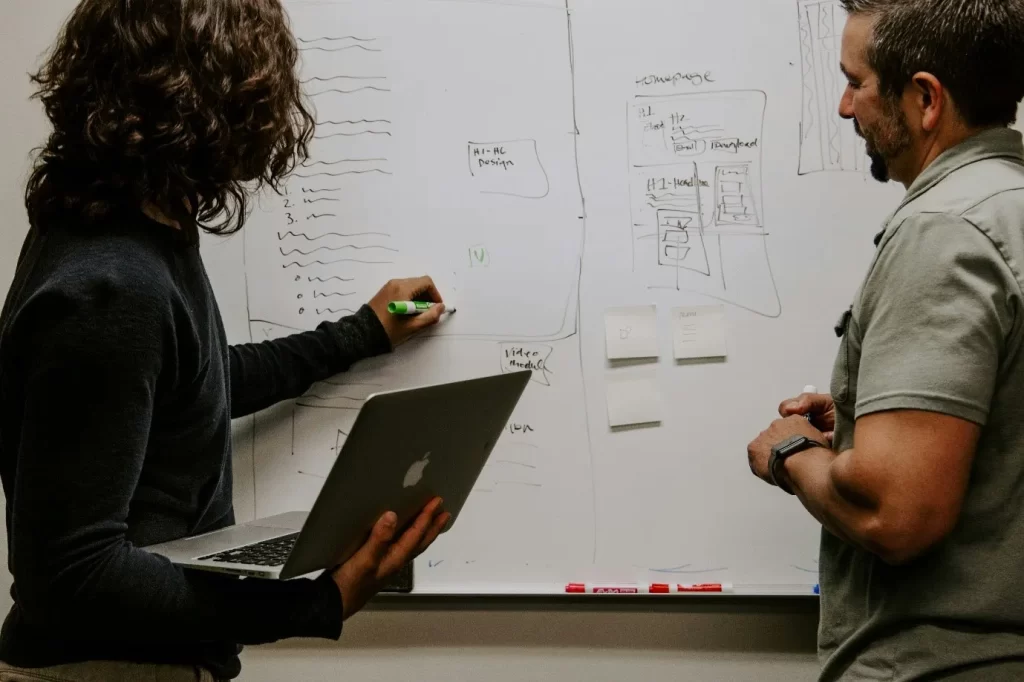Midyear reviews often mark a turning point in the work year. You’ve reflected on your progress, received feedback (both positive and constructive), and now it’s time to translate that feedback into actionable steps for continued growth. Here’s where a well-crafted development plan comes in.
This blog post equips you with the tools and strategies to transform your midyear review feedback into a powerful development plan. We’ll explore:
- Understanding Your Growth Goals: Identifying areas for improvement and aligning them with your career aspirations.
- The Power of Development Plans: How a well-defined plan structures your growth journey.
- Crafting a Development Plan: Building a personalized roadmap for achieving your goals.
- Strategies for Success: Techniques to stay focused and measure your progress.
- Collaboration is Key: Working with your manager to ensure alignment and support.
Understanding Your Growth Goals: Where Do You Want to Be?

The first step is to gain a clear understanding of your desired growth areas. Here’s how to get started:
- Review Your Midyear Feedback: Analyze the feedback received during your midyear review. Identify both your strengths and areas needing improvement.
- Reflect on Your Career Aspirations: Where do you see yourself in the next few years? What skills do you need to develop to achieve your long-term goals?
- Identify Skill Gaps: Analyze the skills required for your desired career path. Compare this to your current skillset and identify any gaps that need to be addressed.
The Power of Development Plans: Structuring Your Growth Journey

A development plan is more than just a list of goals. It’s a structured roadmap guiding your growth journey. Here’s how it benefits you:
- Focus and Clarity: A plan provides a clear direction and keeps you focused on your development goals.
- Measurable Progress: By setting milestones and deadlines, you can track your progress and stay motivated.
- Increased Accountability: Having a defined plan fosters a sense of ownership and accountability for your development.
- Structured Learning: Development plans encourage you to explore various learning opportunities.
- Career Advancement: Demonstrating a commitment to continuous learning enhances your career prospects.
Crafting a Development Plan: Building Your Roadmap

Now it’s time to translate your goals into a concrete plan:
- SMART Goals: Structure your goals using the SMART framework – Specific, Measurable, Achievable, Relevant, and Time-Bound. This ensures clarity and facilitates progress tracking.
- Identify Learning Activities: For each goal, identify specific learning activities that will help you bridge the skill gap. This could include online courses, workshops, mentorship programs, or shadowing opportunities.
- Actionable Steps: Break down each learning activity into smaller, actionable steps. This makes it more manageable and keeps you motivated.
- Set Milestones: Establish realistic milestones for achieving your goals. This allows you to track progress and celebrate achievements along the way.
- Resources: Identify any resources you might need to support your learning activities. This could include financial resources for training programs or access to specific software or tools.
Strategies for Success: Staying Focused on Your Goals

Here are some strategies to maintain focus and achieve your development goals:
- Schedule Time for Learning: Block out dedicated time in your calendar for learning activities. Treat it as important as any other work commitment.
- Track Your Progress: Regularly monitor your progress towards achieving your goals. Use visual tools like progress charts or checklists to stay motivated.
- Celebrate Milestones: Acknowledge and celebrate your achievements along the way. This reinforces positive behavior and keeps you motivated.
- Seek Support: Don’t hesitate to seek support from your manager, colleagues, or mentors. They can offer valuable guidance and encouragement.
Collaboration is Key: Working with Your Manager

Your development plan shouldn’t be created in isolation. Collaborate with your manager to ensure alignment and support:
- Joint Discussion: Schedule a dedicated meeting with your manager to discuss your development plan. Get their feedback and ensure they’re aligned with your goals.
- Managerial Support: Discuss the resources and support your manager can provide to facilitate your learning. This could include budget allocation for training or mentorship opportunities.
- Regular Check-Ins: Schedule regular check-ins with your manager to discuss your progress, address any challenges, and adjust the plan if necessary.
- Demonstrate Ownership: While your manager plays a supportive role, ultimately, it’s your responsibility to take ownership of your development journey.





 TAVE Tose is proud to announce that we are now the official distribution partner with PECB an internationally recognised certifying body for individuals in International Standard Organisation – ISO
TAVE Tose is proud to announce that we are now the official distribution partner with PECB an internationally recognised certifying body for individuals in International Standard Organisation – ISO